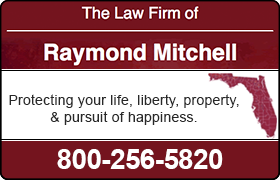Moore Haven Bankruptcy & Debt Lawyer, Florida
Sponsored Law Firm
-
 x
x

Click For More Info:
-
The Law Firm of Raymond Mitchell
3717 Del Prado Blvd. South Cape Coral, Florida 33904 » view mapLee County Bankruptcy Lawyer We Help You Survive Financial Attacks
We strive to protect your freedom and rights and provide high quality legal services to you in a professional, respectful, realistic and honest manner.
800-256-5820  Raymond B. Mitchell Cape Coral
Raymond B. Mitchell Cape CoralAttorney At Law - FL, 1994
Regent University School of Law - 1993
 Chapter 7Liquidation
Chapter 7LiquidationA Chapter 7 liquidation proceeding is available to individuals, partnerships, and corporations.
 Chapter 13Reorganization
Chapter 13ReorganizationA Chapter 13 bankruptcy, or "wage earner reorganization" is available only to individuals with regular income.
Diane Muenze Gonzalez
✓ VERIFIEDWith over 25 years of experience, attorney Diane Gonzalez has provided numerous clients effective and reliable legal counsel on a wide range of legal ... (more)
Raymond Brian Mitchell
✓ VERIFIEDProtecting Your Life, Liberty, Property, Family, Income, Assets, and Pursuit of Happiness! Eliminate Debts & Get a Fresh Start! See Your Children! Pro... (more)


 Raymond B. Mitchell Cape Coral
Raymond B. Mitchell Cape Coral Chapter 7Liquidation
Chapter 7Liquidation


